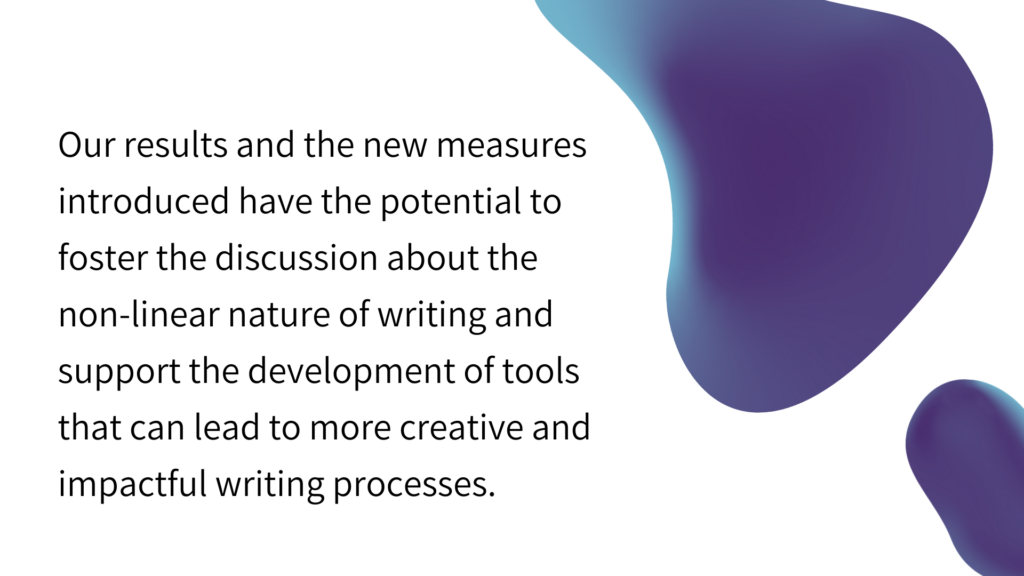Writing is a complex process at the center of much of modern human activity. Despite appearing to be a linear process, writing conceals many highly non-linear processes. Previous research has focused on three phases of writing: planning, translation and transcription, and revision. While research has shown these are non-linear, they are often treated linearly when measured. Here, we introduce measures to detect and quantify subcycles of planning (exploration) and translation (exploitation) during the writing process. We apply these to a novel dataset that recorded the creation of a text in all its phases, from early attempts to the finishing touches on a final version. This dataset comes from a series of writing workshops in which, through innovative versioning software, we were able to record all the steps in the construction of a text. 61 junior researchers in science wrote a scientific essay intended for a general readership. We recorded each essay as a writing cloud, defined as a complex topological structure capturing the history of the essay itself. Through this unique dataset of writing clouds, we expose a representation of the writing process that quantifies its complexity and the writer’s efforts throughout the draft and through time. Interestingly, this representation highlights the phases of “translation flow”, where authors improve existing ideas, and exploration, where creative deviations appear as the writer returns to the planning phase. These turning points between translation and exploration become rarer as the writing process progresses a


